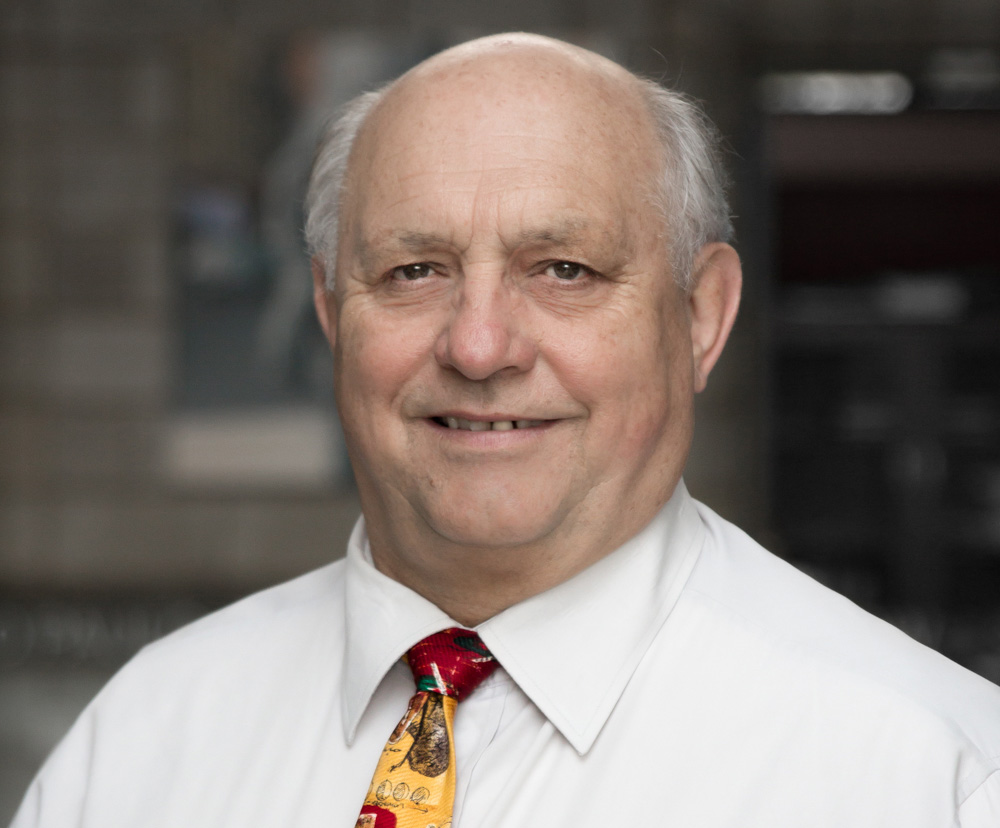26/02/2019 Interview
Nico Jooste, former director for International Education of the Nelson Mandela University
“Internationalisation allows Universities to shape their reality in the global environment”

Nico Jooste is the founding director of the Nelson Mandela University and has been Director for International Education since July 2001. He retired last December. He is an expert in Internationalisation of Higher Education
The URV and the Nelson Mandela University are partners within the INU Network (International Network of Universities) and have been granted Erasmus + KA107 funding for the exchange of staff and students.
This is not the first time that you have visited the URV, what particularly stands out for you from your previous and present visits to the URV?
Firstly – it is an amazing place – it is my third visit and it is every time an absolute pleasure to experience the traditional in a very modern culturally rich environment. The present visit is proving extremely valuable. It has allowed me to interact with numerous role players and plan possible future activities. It is a very focused visit and we are developing a concept for the submission of a project to be funded by the European Union. The experience of working with the URV in past projects and the success in implementing such projects has provided me with the comfort that we cannot fail with a partner like this. I have also been able to visit some of the centres of excellence at the URV and to promote our own University and its equivalent entities. It is clear that the possibilities for collaboration are numerous – we simply have to determine what is the best way of implementing this.
How do you see the importance and role of Internationalisation for Higher Education Institutions nowadays?
Internationalisation will remain one of the most important activities for any modern University. In today’s complex world where rationality is threatened by populism – it is important for Universities to engage in a more focused and regular manner with the international environment. Internationalisation is the mechanism that allows Universities to constantly evaluate, re-evaluate and shape their reality in the global environment. It is clear that the focus should not only be on international mobility but also on engaging with the local and regional environment. Universities as global players must begin to translate the global to the local as well as to interpret new global knowledge paradigms to the traditional local environment. It is thus of the utmost importance that Universities find their voices in this complex environment and project them clearly to their immediate environment as well as to the broader national and global environment.
What would you highlight, if anything, about the URV’s internationalisation vision or activities?
The URV is an important player in the global and regional environment. It should build on its international reputation but also make sure that it creates the necessary capacity at all levels to be comprehensively internationalised. URV is setting the tone globally in many of its academic domains, it should recognise and appreciate the success of its broader internationalisation activities but also make every effort to continue being one of the leading universities on how internationalisation could be institutionalised.
In which areas can you see possible fruitful collaboration between our two institutions?
We have identified Archaeology and Environmental Palaeontology as two immediate areas of collaboration. Academically we should also focus on Architecture and Tourism Management. As we are also a major tourist destination and a coastal city, collaboration would take the academic excellence of the programs to another level. It is also important that we constantly explore and innovate to determine other areas of collaboration. Collaborating in an Erasmus Capacity Building project in Southern and East Africa will bring numerous benefits to both institutions.
What about the Tarragona region? What have you liked the most and why?
I could write a book about my experience – as a historian it speaks to me. It is wonderful to see how the past is celebrated through the preservation of historical artefacts. It is, however, also an environment characterised by a living cultural history. The integration of the traditional with the modern is one of the true values of this region. It preserves and modernizes in such a way that the two complement each other in perfect harmony.
And finally, what would you tell those who are thinking of doing what you have just done and spend a week at another institution to learn how things are done in a different context?
Don’t hesitate – it will empower and enrich you and that one week will lead to many return visits. It is a must for everyone.
During Dr Jooste’s visit to the URV under the framework of the Erasmus+ International Mobility scheme between the URV and the Nelson Mandela University, he has met the Vice-Rector for Internationalisation, has visited the International Center and the IPHES, met with Ms Blanca Domingo in charge of the tailor-made courses at the URV Foundation and worked extensively on an Erasmus+ project proposal with the head of the International Center.
